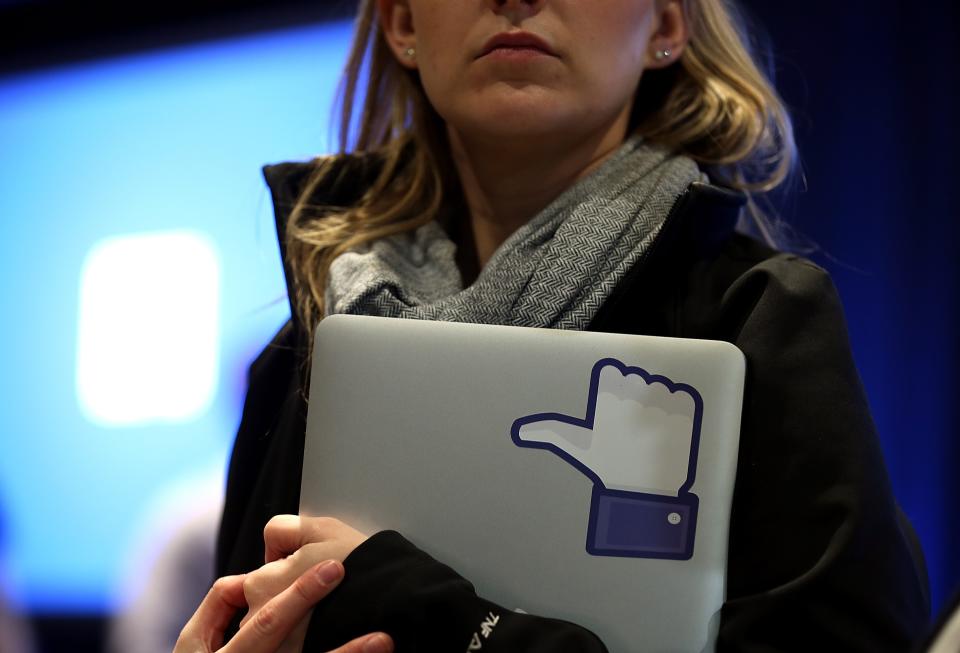How America's tech giants reached 'crisis mode'
This week, ProPublica revealed that Facebook (FB) had, until recently, let advertisers target the news feeds of people who expressed interest in anti-Semitic topics like “How to burn Jews.”
This was just the latest PR disaster for the social network and, in fact, for America’s tech giants as a whole. Since the election of Donald Trump, the tech companies that consumers rely on to navigate the world and stay connected have come under more scrutiny — for hosting fake news and hateful content, for allegedly violating antitrust rules, and for killing jobs, to name a few areas of concern.
America’s tech giants could do no wrong just nine months ago, Scott Galloway, a professor of marketing at New York University’s business school, told Yahoo Finance. Now, he says, “They’re in crisis mode, all of them.”
‘The worm has turned against big tech’
The growing power of tech giants — coupled with Russian operatives on Facebook and the hate groups seemingly everywhere online — have created a perfect storm that could soon come crashing down on big tech, Galloway said.

“There is a movement afoot against the large tech companies. It’s coming from both directions: It’s coming from the far left who feel that they feel they destroyed jobs and hacked the election, and it’s coming from the far right who hate these companies as they feel they don’t have a seat at the table,” Galloway said, adding, “The worm has turned against big tech.”
A decade ago, Facebook had already become “the web’s hottest platform,” as Fred Vogelstein wrote in Wired. The following 10 years shed light on the social network’s drawbacks even as it became more ubiquitous (i.e., more and more people’s moms were joining Facebook). Facebook’s targeted advertising creeped out some users, and the site could also be fertile ground for cyber-bullies.
But those flaws paled in comparison to concerns that emerged following the US presidential election. That’s when it was accused of being a vehicle for spreading misinformation that helped defeat Hillary Clinton and elect Donald Trump. Rather than fading away, charges that Facebook swayed the election heated up after it revealed that a Russian company with Kremlin ties had purchased $100,000 worth of ads on polarizing social issues like gun control and immigration.
Meanwhile, a New York Times this month found that suspected Russian operators were using both Twitter (TWTR) and Facebook to disseminate anti-Clinton messages.

Facebook’s disclosure about the $100,000 in political ads prompted Sen. Mark Warner, D-VA, to question Facebook’s initial response to hints of election interference. “It appeared to me that the very social media sites that we rely on for virtually everything — our Facebooks, Googles and Twitters — it was my belief the Russians were using those sites to intervene in our elections,” Warner said earlier this month at the Intelligence & National Security Summit in Washington. “And the first reaction from Facebook was: ‘Well you’re crazy, there’s nothing going on’ — well, we find yesterday there actually was something going on.”
At the same time, it’s become clear that Facebook and Twitter aren’t just tools for foreign operatives and in fact have become the “preferred weapon of choice for hate,” Galloway, the NYU professor, told Yahoo Finance. While Facebook, Twitter, and Google (GOOG, GOOGL) have all banned hate groups, these actions resemble a game of Whac-a-mole — i.e,. more of them may keep coming back.
Hate groups and Russians aren’t tech’s only problems. America’s giant companies also have internal issues like allegations of sexual discrimination, and concerns that they — namely, Google and Amazon (AMZN) — may be operating illegal monopolies. Amazon’s recent acquisition of Whole Foods only seemed to confirm some fears that the “everything store” is seeking world domination.
“This consolidation that’s happening all over the country is not a positive trend,” US Sen. Cory Booker, D-N.J., told Recode’s Tony Romm over the summer.
Eventually, Galloway says, new regulations will be put in place to check this growing power.
More regulations, and public pressure to ‘hire more sheriffs’
The increased scrutiny of America’s tech giants may end up forcing them to spend more money to monitor the content people post. Historically, companies like Facebook have been reluctant to admit that they’re “media companies” — the implication being that media companies must police their own content.
“Imagine if 80% of the beef being served at McDonald’s was fake and we got sick and we got encephalitis,” Galloway posited. “What if in its own defense, McDonald’s said, we’re not a fast food restaurant. We’re a fast-food platform. Would we accept that?”
To be sure, Google, Facebook, and Twitter have all taken some responsibility for removing certain content. Facebook has limited targeted advertising in response to the ads aimed at anti-Semites, and Twitter has banned users for harassing others on the platform (notably, Martin Shkreli and Milo Yiannopoulos). Just this week, Google started restricting ads for addiction treatment centers amid concerns over public safety.
But pressure from the public may spur these companies to remove content more aggressively. “People have basically said, okay this is not the wild west. We want a sheriff. This town makes so much money it should be able to afford more sheriffs,” Galloway said.
Increased public awareness of the flaws in big tech — and public antipathy towards tech companies — may also spur state attorneys general to regulate these companies more rigorously, he said.
“By abdicating all responsibility and refusing to acknowledge they were media companies and accept the responsibility incumbent upon media companies, they have stick their chins out,” Galloway said, noting that soon regulators may soon be throwing stones at those chins.
If Galloway is correct, the glory days of sky-high tech valuations may not last forever.
Erin Fuchs is deputy managing editor at Yahoo Finance.
Read more:
Moody’s: Amazon may actually be the weakest retailer
Here’s what the fired ‘anti-diversity’ engineer would have to prove in his case against Google
A fight over gay employees will almost certainly hit the Supreme Court
A legal fight over NYC dog sitters highlights a bigger problem in America
FTC likely to approve Whole Foods deal even if Amazon did deceive customers

 Yahoo Finance
Yahoo Finance 
